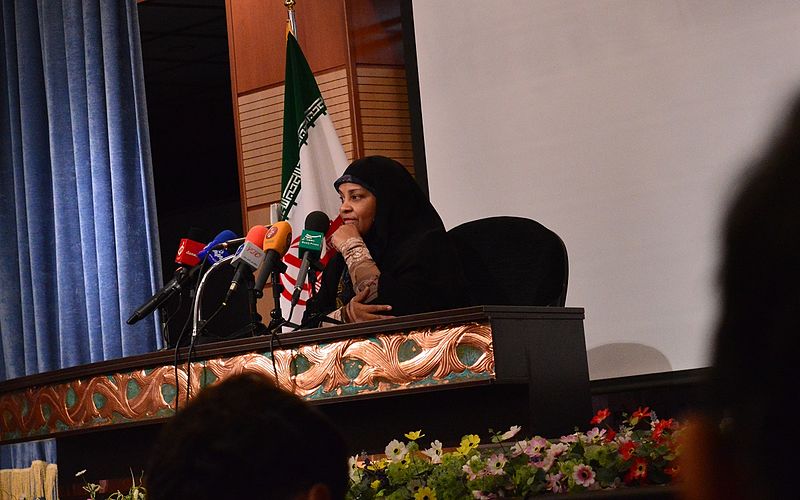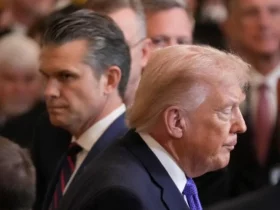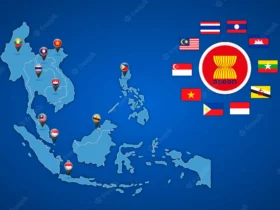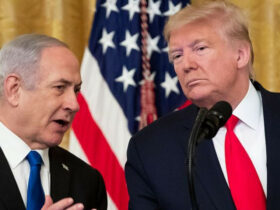On January 13, the FBI, without explanation, detained journalist and television presenter Marzieh Hashemi. The arrest of the 59-year-old Iranian mother and US citizen and the events that followed clearly demonstrate the duplicity of the United States and other Western countries.
Despite being the first to invoke accusations of human rights abuses when their citizens are placed under arrest abroad, the US was completely unabashed in doing the same, seemingly indifferent to the widespread public outcry.
US authorities did not bother to make any statements regarding Hashemi’s fate following her arrest. She was in the states in the first place in order to visit her sick parents but was not even allowed to see them. In the course of her 11-day detention, Hashemi appeared in court three times and allegedly gave testimony, the details of which have not been disclosed.

Representatives of the Iranian Foreign Ministry quickly made a declaration urging the United States to “release Hashemi immediately and without any conditions”. The Iranian High Council for Human Rights called on international organizations to take active steps to secure the journalist’s release.
In the American legal system a “material witness,” with crucial information regarding a case can be detained by the court and made to stand trial. Hashemi was ostensibly detained as a “material witness” in the framework of a secret federal investigation, but she maintains that her arrested was motivated by her religious beliefs and civic position.
“I realized how easy it is for them to eliminate a person they find disagreeable. If it wasn’t for my son who lives [in the United States], no one would know where I am or what happened to me. I wonder how many people got into the same situation as me. Now I have experienced what it means to be arrested without charge. ”
According to Hashemi, in the course of days of interrogations, she was held in a Washington prison where she had to put on the prisoner’s clothes and take off her hijab in contradiction to her religious beliefs. The journalist called on her supporters and those concerned about the arbitrary nature of the detention to protest the US’ actions.
The hypocrisy continues
The 11-day detention of the Muslim journalist was hardly covered in American and European media. The few places that did have a story on the issue were mostly small local publications and Internet portals. Meanwhile, when a similar situation occurred to a US citizen in Turkey, American and European politicians sprang into action, using their eager allies in the press to push their agenda.
In order to secure the release of US citizen and Pastor Andrew Brunson, who was detained in Turkey, US President Trump imposed political sanctions against the entire country, while the mass-media across Europe pushed anti-Turkish rhetoric. The Turkish people are still feeling the effects of the economic and political pressure.
The US media launched an all-out media campaign, accusing Turkey of violating human rights and demanding Brunson’s immediate release.
European media follows suit
The story of a German citizen (Deniz Yücel, a reporter from Germany’s Die Welt) arrested in Turkey, was also widely spread across western media.
After Yücel’s arrest, journalists from many European countries, primarily Germany, organized campaigns and protests in Yücel’s defense, demanding his immediate release, and accusing Turkey of violating freedom of speech and human rights. Protests against the arrest were held in ten German cities, as well as Austria and Switzerland.

In addition, German Chancellor Angela Merkel personally contributed to the campaign to have the journalist freed, using all available levers of political pressure against Turkey.
A campaign to collect signatures in support of the journalist was promoted widely across German media. The owner of Die Welt, German media magnate Axel Springer, hung a massive billboard on the side of the editorial office building with the inscription “Free Deniz”.
The question then arises: why are the United States and the EU so scrupulous and sensitive in protecting what are ostensibly “universal human rights” when it pertains to their citizens, and not to be bothered when it comes to citizens of other countries?
We referred this question to the president of the Human Rights Association of Turkey Öztürk Türkdoğan, who told us the following:
“We consider the actions of the United States in [arresting Hashemi] to be wrong. The normal practice when conducting such an investigation is to invite a witness to the prosecutor’s office to testify, after which the person is released.”
Türkdoğan also discussed the reasons for the West’s unapologetic double-standards:
“Firstly, Western countries are supposed to oppose the arrests of media representatives both at home and in other countries. This is a central feature of western democracy. For this reason, when a journalist or even a normal citizen of a European country is detained in another state, the authorities of that country are willing to mobilize political pressure to have that person released. In addition, they do not arrest their own journalists. Here we are talking about certain standards prevailing in these countries. However, in relation to citizens of other countries on their territory, they are far less reserved.
These standards are important in terms of maintaining their alleged respect for freedom of speech. As for countries like Turkey, Iran and a number of others, the rights of citizens and media representatives are not protected by the state. Therefore, when these countries see western authorities detaining foreign journalists and the indignant silence of the international community these western nations’ claims to be defenders of human rights and freedoms seem insincere and fake. However, no one puts any stock in the anger of countries who themselves regularly use similar methods in relation to their own journalists.
The arrest of this journalist in the United States and her 11-day detention is unacceptable. If a person does have crucially important information for a legal case, he must be summoned to the authorized organizations, sent to the prosecutor’s office to testify, and then released. The United States should have done just that.
The US’ actions are likely connected to common prejudice against Iran and Iranian citizens, and journalists in particular, on the part of the country’s authorities. This is also unacceptable.
Meanwhile, I want to emphasize that non-Western countries have nothing special to say on the issue of double standards. The right to have a say in this situation belongs exclusively to those countries that actually protects freedom of speech, rather than those who don’t even make a pretense toward such guarantees.
At the same time, we strongly condemn the arrest of the journalist and her detention. This is an unacceptable measure that should not take place again.”
Hashemi’s arrest, alongside broader questions regarding freedom of speech and the rights of media representatives, was also commented on by the head of the Progressive Journalists Association (PJA), Can Güleryüzlü.
“Mankind today has come face to face with the problem of strengthening authoritarian tendencies throughout the world. In the conditions of the modern world, where we see a departure from democratic principles and the move toward concentration of power in the hands of a single person, the most serious blows fall on freedom of speech and the press. Journalistic activity, which is at the forefront of those spheres of life with the most pronounced need to have these freedoms respected, is unfortunately increasingly becoming a target for attacks by authoritarian regimes and leaders.
One of the most striking indicators of this situation is a report prepared by the Committee to Protect Journalists (CPJ), which stresses that “in 2018 the number of journalists killed on the basis of revenge for their professional duty increased two-fold in the scope of a single year. According to the report, 34 of the 53 journalists killed in the world from January 1 to December 14, 2018, were victims of retaliatory crimes.
We, as the representatives of the media in a country where every day they investigate, judge or arrest at least one journalist, must closely monitor cases of harassment and violations of the rights of journalists around the world.
Recently, we were faced with a related incident – the detention of Press TV’s Marzieh Hashemi in the United States. With this incident, the position of the United States, which regularly instructs other countries around the world about the importance of freedom of speech, undoubtedly and openly violated media freedom. Marzieh Hashemi was held for 11 days without even being told why she was arrested and without any charges ever being brought against her. We must not forget that a country can more or less be judged based on the way it behaves toward journalists. In this regard, high-ranking officials and political leaders should understand that their relationship to the press is an integral part of not only their own legitimacy but that of democratic society as a whole”.

















Leave a Reply